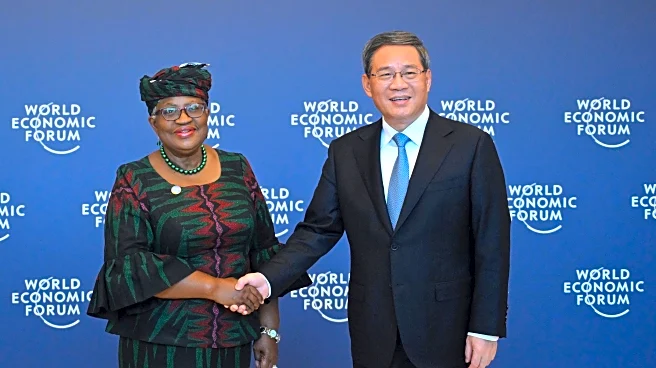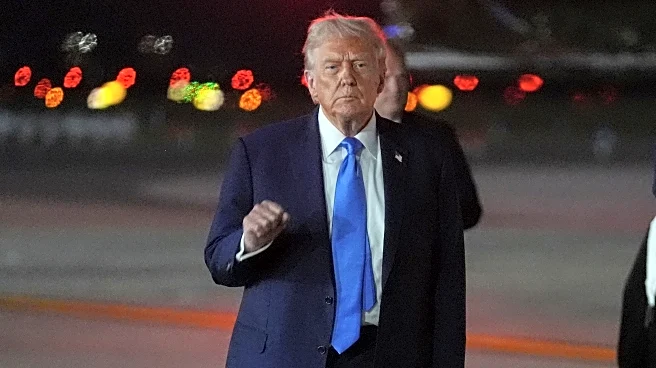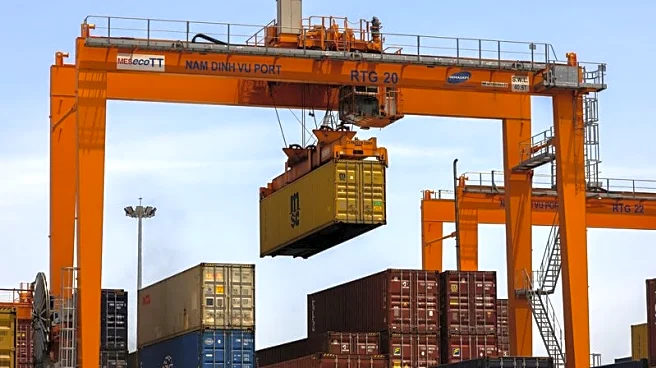What's Happening?
Mexico is set to raise tariffs on Chinese cars and components from 20% to 50%, influenced by pressure from the United States. The U.S. perceives Mexico as a potential route for Chinese companies to access the American market, prompting this tariff increase. Chinese companies currently hold a 13-14% share of the Mexican light vehicle market, with most of their vehicles being imported. The tariff hike is expected to impact the operations of Chinese automakers in Mexico, including JAC, which has a low-volume plant in the country.
Why It's Important?
The tariff increase is significant as it reflects the ongoing trade tensions between the U.S., Mexico, and China. By raising tariffs, Mexico aims to align with U.S. trade policies, potentially affecting the dynamics of international trade in the automotive sector. This move could lead to higher costs for Chinese automakers operating in Mexico, impacting their competitiveness and market share. Additionally, it may influence the broader trade relationships between these countries, affecting economic stakeholders and industries reliant on automotive imports and exports.
What's Next?
The tariff increase may prompt Chinese automakers to reassess their strategies in Mexico, potentially leading to shifts in production or supply chain adjustments. The U.S. may continue to exert pressure on Mexico to implement trade policies that align with its interests, possibly affecting other sectors beyond automotive. Stakeholders, including political leaders and industry representatives, may engage in discussions to address the implications of these tariffs and explore potential resolutions to mitigate trade tensions.
Beyond the Headlines
The decision to increase tariffs on Chinese cars in Mexico could have broader implications for global trade relations, highlighting the influence of U.S. policies on international markets. It raises questions about the balance of power in trade negotiations and the potential for similar actions in other industries. The move may also spark debates on the ethical considerations of using tariffs as a tool for political leverage, impacting the long-term stability of trade agreements.












